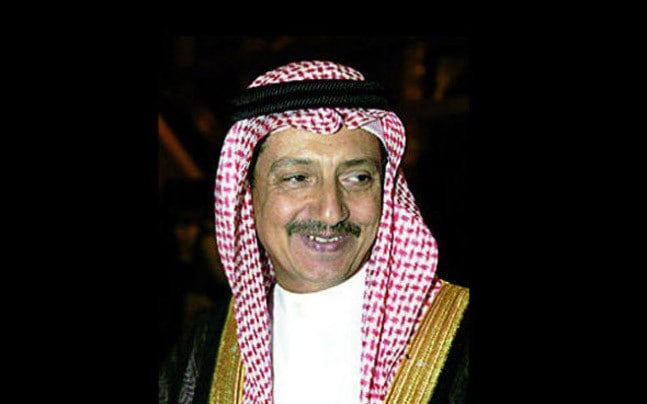Bakr bin Laden – chairman of the kingdom’s pre-eminent contractor and Osama bin Laden’s half-brother, is among the top princes arrested in Saudi Arabia this week.
RIYADH: Among those caught in the unprecedented arrests this week of top princes, wealthy businessmen and senior officials was the scion of one of Saudi Arabia’s most recognizable families: Bakr Binladin, the chairman of the kingdom’s pre-eminent contractor and Osama bin Laden’s half-brother.
It was a stunning end to a decades-old alliance between the ruling Al Saud and Binladin families that saw the Saudi Binladin Group secure a near-monopoly on mega-expansion projects in Islam’s two holiest sites, Mecca and Medina, throughout the reigns of successive Saudi monarchs.
The government says 201 people have been taken into custody in the purge, which comes amid an anti-corruption probe it says uncovered at least USD 100 billion in graft and embezzlement.
Saudi critics and experts have called the arrests a bold and risky move by Crown Prince Mohammed bin Salman aimed at consolidating power as he sidelines potential rivals, silences critics and dismantles alliances built with other branches of the royal family.
The 32-year-old crown prince, who is the son of King Salman and is popularly known by his initials MBS, is leading the anti-corruption investigation. He’s also the force behind the so-called Vision 2030 plan, a blueprint for how to restructure the country and wean it from its dependence on oil revenue.
The arrests of Binladin and the others not only signal the end of old alliances, but also speak to the larger demands being made on the business community to pay into the crown prince’s economic vision in an era of lower oil prices.
“This is the beginning of the rise of economic nationalism,” said Ayham Kamel, head of the Middle East and North Africa division of the Eurasia Group.
A centerpiece of that plan is NEOM, a USD 500 billion project that promises to be the world’s most futuristic and technologically-advanced city, which was unveiled by the crown prince at a headline-grabbing global investment conference in Saudi Arabia last month.
But instead of receiving major pledges to the project by Saudi business leaders, MBS “got deafening silence”, Kamel said.
Since the 1950’s, the Binladins have been the royal family’s go-to contractor for some of its most sensitive projects, including construction of private palaces in the immediate boon years after oil was discovered in Saudi Arabia. As the royal family spent lavishly on trips abroad and new palaces at home, the Binladins became their creditors, as well as contractors.
Run as a private company by members of the large Binladin family, the firm is no stranger to political upheaval and changes in the kingdom.
“The Binladins were able to remain essential to the royal family despite very dramatic events within the royal family,” said Steve Coll, author of “The Bin Ladens: An Arabian Family in the American Century.”
The Binladins were also no strangers to controversy. They weathered the blow to the family name and reputation after the 9/11 attacks in New York masterminded by Osama bin Laden, a son of family patriarch Mohammed Binladin.
The Binladin Group was crucial to Saudi rulers in 1979 when militants laid siege to Islam’s holiest site in Mecca for 15 days. The company, which had been working on expansion projects there, helped flush the rebels out of tunnels because they had the blueprints and maps, Coll said.
But while the Al Saud-Binladin alliance has been a pillar of how the royal family retained power over the years, the needs of the kingdom have changed, Kamel said.
“They helped the Al Saud family in their time of need, but the utility of that relationship has been exhausted,” he said. “It is no longer attractive for Al Saud to retain that, nor can they afford to.”
In 2015, the Binladin Group suffered two major blows: the collapse of oil prices and the collapse of one of its cranes.
Saudi Arabia has so far detained 201 people, including prominent billionaire investor Prince Alwaleed bin Talal and dozens of current and former ministers, in corruption probe in the country.
AP/PTI inputs

